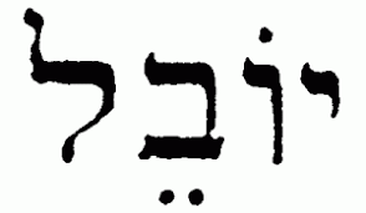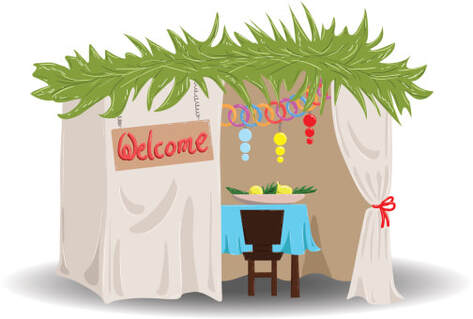
ואם־בחקתי תמאסו ואם את־משׁפטי תגעל נפשׁכם לבלתי עשׂות את־כל־מצותי להפרכם את־בריתי׃
אף־אני אעשׂה־זאת לכם
" 'But if you will not listen to me and obey all these mitzvot, if you loathe my regulations and reject my rulings, in order not to obey all my mitzvot but cancel my covenant; then I, for my part, will do this to you:
(Lev 26:14-16 CJB)
OUR PART IN THE DEAL OF HOLY SET-APARTNESS.
During a discussion concerning a certain politician's controversial proclamation someone said to me, "Well, he is born again and he says that he received the Spirit so what he proclaims must be inspired!"
The premise behind that statement is that because the politician in question claimed to have “received” the “Spirit of God”, his thoughts are automatically inspired by God and should be understood as such. I would take objection to that because whereas one may have received the Spirit of God, it still is up to him to, moment by moment, make the conscious choice to offer himself as a sacrifice living and set apart for God (Rom 12:1-2) and to take every thought captive and make it obey the Messiah (2 Cor 20:5).
THE RESPONSIBILITY OF KNOWING!
A commentary from the Chofetz Chayim I read this morning made me think about all that. In his commentary on Par’shat B’chukotai he mentions how some people do not like to read the portion of this week's parasha about the dangers of rejecting Torah (Lev 46: 14-43). The fear of the retribution is such that they would rather not know. Some people either say it very softly, while others even walk out during that part of the parsha reading. Their reasonning is that they would rather be focusing on the positive elements of the Torah. It’s more “edifying!”
There is a certain element of faith in that attitude as it represents a healthy respect and fear of HaShem and in His power to retribute evil. Yeshua Himself spoke on the “bliss” of ignorance compared to the responsibility of “seeing” in, exhorted some Pharisees that challenged Him with,
Yeshua answered them, "If you were blind, you would not be guilty of sin. But since you still say, 'We see,' your guilt remains.
(Joh 9:41 CJB)
But as Yeshua did, the Chofetz Chayim feels that stopping our ears from hearing these words of warning is a grave mistake. He compares it to a man traveling on a dangerous path. The path involves many narrow sections of road where the careless traveler could trip and fall off the edge in a ravine. The path may go through thick forests where animals are lurking. In order to not feel the pressure and fear of his incoming journey, the man then decides to blindfold himself. After all, he cannot fear that which he cannot see!
As foolish as this may sound, this is a situation similar to that of the person who feels that he cannot do or say wrong just because he has the '"spirit" as really, to believe that because we have been immersed by the Spirit our thought are automatically inspired but God is literally wearing a blindfold while walking the dangerous path of this life. This person has put on the blindfold of voluntary ignorant denial of reality, but ignoring or denying reality just doesn't make it so.
While we should certainly be more focused on the positive aspects of the Torah, the knowledge of the harmful consequences of disobedience is essential in order to motivate us against doing wrong.
THE FATE OF THE VOLUNTARILY IGNORANT:
Solomon compares that sort of person to a simple person foolishly following the lust of his heart without any checks and balances. Here is how he says it in Prov 7.
"My son, keep my words, store up my commands with you.
(The positive and the negative commandments)
Obey my commands, and live; guard my teaching like the pupil of your eye.
(Life comes from keeping them, the positive and negative commandments.)
Bind them on your fingers;
(May they control the creation of your hands)
Write them on the tablet of your heart.
(May they control the thoughts and inclinations of your heart)
Say to wisdom, "You are my sister"; call understanding your kinswoman;
(The fear of the Lord is the beginning of wisdom)
So that they can keep you from unknown women, from loose women with their seductive talk.
(The loose seductive woman is the antithesis of the virtuous woman of Proverbs 31. She is the spirit of worldliness, also called the Mother of Harlots of Revelation 17-18)
For I was at the window of my house, glancing out through the lattice, when I saw among the young men there, among those who don't think for themselves, a young fellow devoid of all sense.
(Blindfolded, religiously oblivious to his own sinful impulses)
He crosses the street near her corner and continues on toward her house.
(He is blind and oblivious of where he is going)
Dusk turns into evening, and finally night, dark and black.
(The darkness of ignorance has gradually totally set up upon him)
Then a woman approaches him, dressed as a prostitute, wily of heart. She's the coarse, impulsive type, whose feet don't stay at home; rather, she stalks the streets and squares, lurking at every streetcorner. She grabs him, gives him a kiss, and, brazen-faced, she says to him, "I had to offer peace sacrifices, and I fulfilled my vows today. This is why I came out to meet you, to look for you; now I've found you. I've spread quilts on my couch made of colored Egyptian linen. I've perfumed my bed with myrrh, aloes and cinnamon. Come on, let's make love till morning; we'll enjoy making love. My husband isn't at home, he's gone on a long trip; he took a bag of money with him and won't be back till the moon is full." With all her sweet talk she convinces him, enticing him with her seductive words.
(Is she really to blame? Had he had his eyes opened, he would have known better than
- Going in the direction of her house
- Listening to that coarse impulsive woman whose feet don't stay at home.
- Letting her kiss him
- Letting himself be enticed by her words especially when she says that she's already married.
At once he follows her like an ox on its way to be slaughtered; like a fool to be punished in the stocks; or like a bird rushing into a trap, not knowing its life is at stake till an arrow pierces its liver.
(His deliberate ignorance of the warnings cause him to be caught in the deathly trap of disobedience!)
So now, children, listen to me; pay attention to what I am saying.
Now to the conclusion:
Don't let your heart turn to her ways; don't stray onto her paths. For many are those she has struck down dead, numerous those she has killed. Her house is the way to Sh'ol; it leads down to the halls of death.
(The words of the Torah are our warning!)
Being ignorant, voluntary or otherwise, of the words of warning in the Torah is what causes us today to fall into the trap of sin, and will fell into the arms of the Whore of Babylon at the end of days.
The enemy even tried with Yeshua, but He fought back with the words of the Torah (Mat 4:1-11)
May we always study the words of warning given to us in the Torah that we may be aware of the enemy’ deathly traps.
R' Gavriel



 RSS Feed
RSS Feed